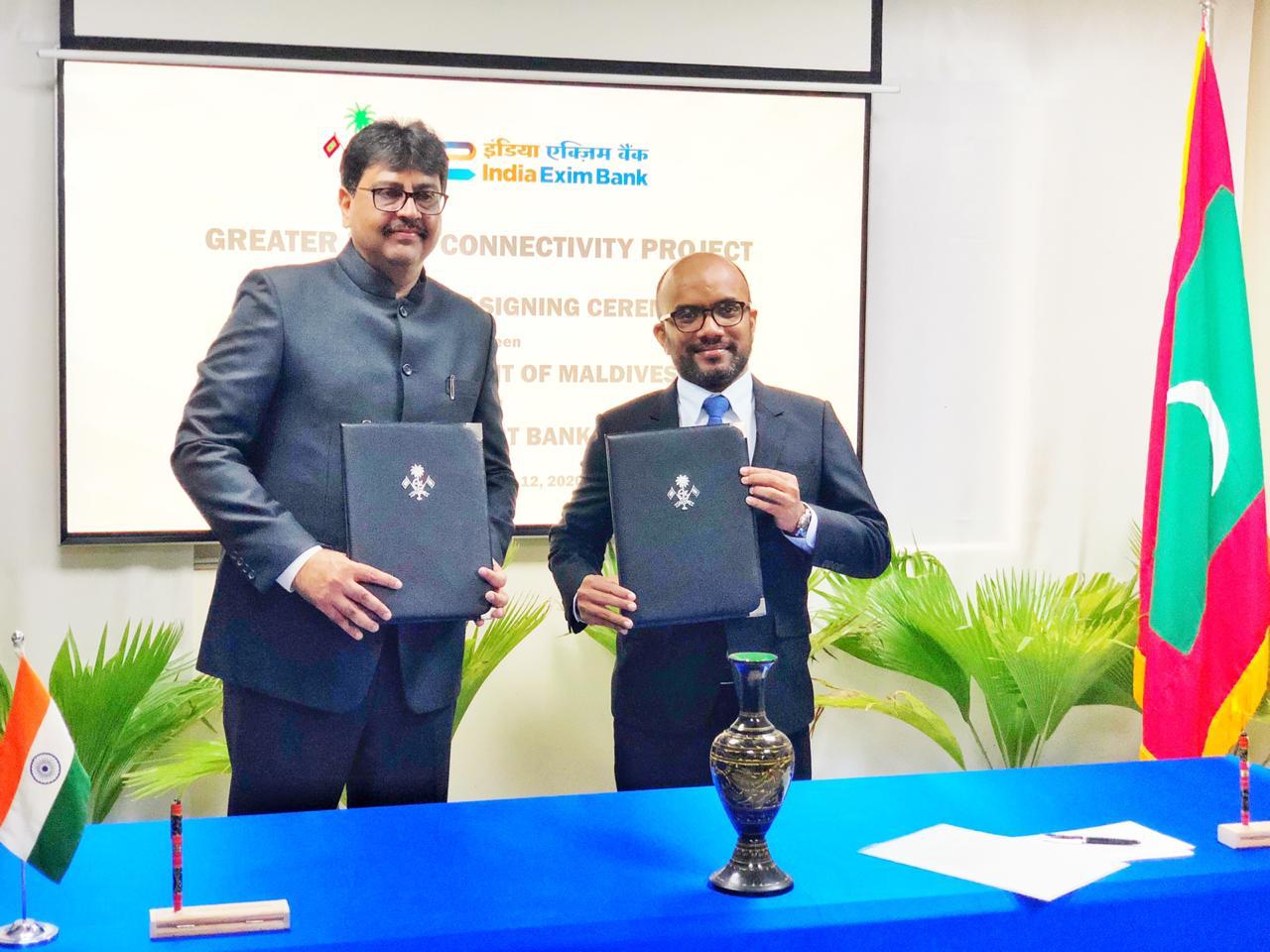Male’, Maldives – EXIM Bank of India and the Maldivian government has signed an agreement for USD 400 million for the development of Greater Male Connectivity Project and the Indian government committed to another USD 100 million as grant for this project.
The Greater Male Connectivity Project (GMCP) includes a 6.7 km bridge and causeway network connecting Male, Villingili, Gulhifalhu and Thilafushi and as per the current government this would be a national economic engine and lifeline connecting Hulhumale’, Hulhule’ and Male’ with the proposed Gulhifalhu Port and the Thilafushi Industrial Zone. The project is expected to commence by December 2020. India’s support for the project was announced during the virtual meeting between External Affairs Minister Dr. S. Jaishankar and Foreign Minister Abdulla Shahid on August 13, 2020.

The new bridge includes three navigation bridges of 140 meter main span across the deep channel between each island, 1.41 km of marine viaduct in deep water, 2.32 km marine viaduct in shallow water or on land, and 2.96 km of at-grade roads. Bus terminals are also planned on each island near the junctions with the mainline and the project will use solar power for road lighting, navigation lighting, deck cell lighting, CCTV and lighting on sign gantry and architectural lighting.
According to the EXIM bank, the Detailed Project Report (DPR) has been prepared by the project consultant M/s Arup Ltd. and it has been already approved by the technical authorities of the Maldivian government. The tendering documents are to be prepared through consultations between the Maldivian government and the EXIM Bank of India and this is set to start in the next couple of days. The final tender for selecting the Engineering Procurement and Construction (EPC) contractor will be issued by the Government of Maldives according to the EXIM bank.
EXIM Bank also stated that this loan would include a 5-year moratorium and a 20-year repayment period for the Maldivian government. However the Indian Line of Credit stipulations mandate that 65 percent to 75 percent of the project components should be sourced from India. Although this is the case, EXIM Bank states that this does leave a fair share of opportunity for Maldivian businesses and services to be engaged in project implementation.





